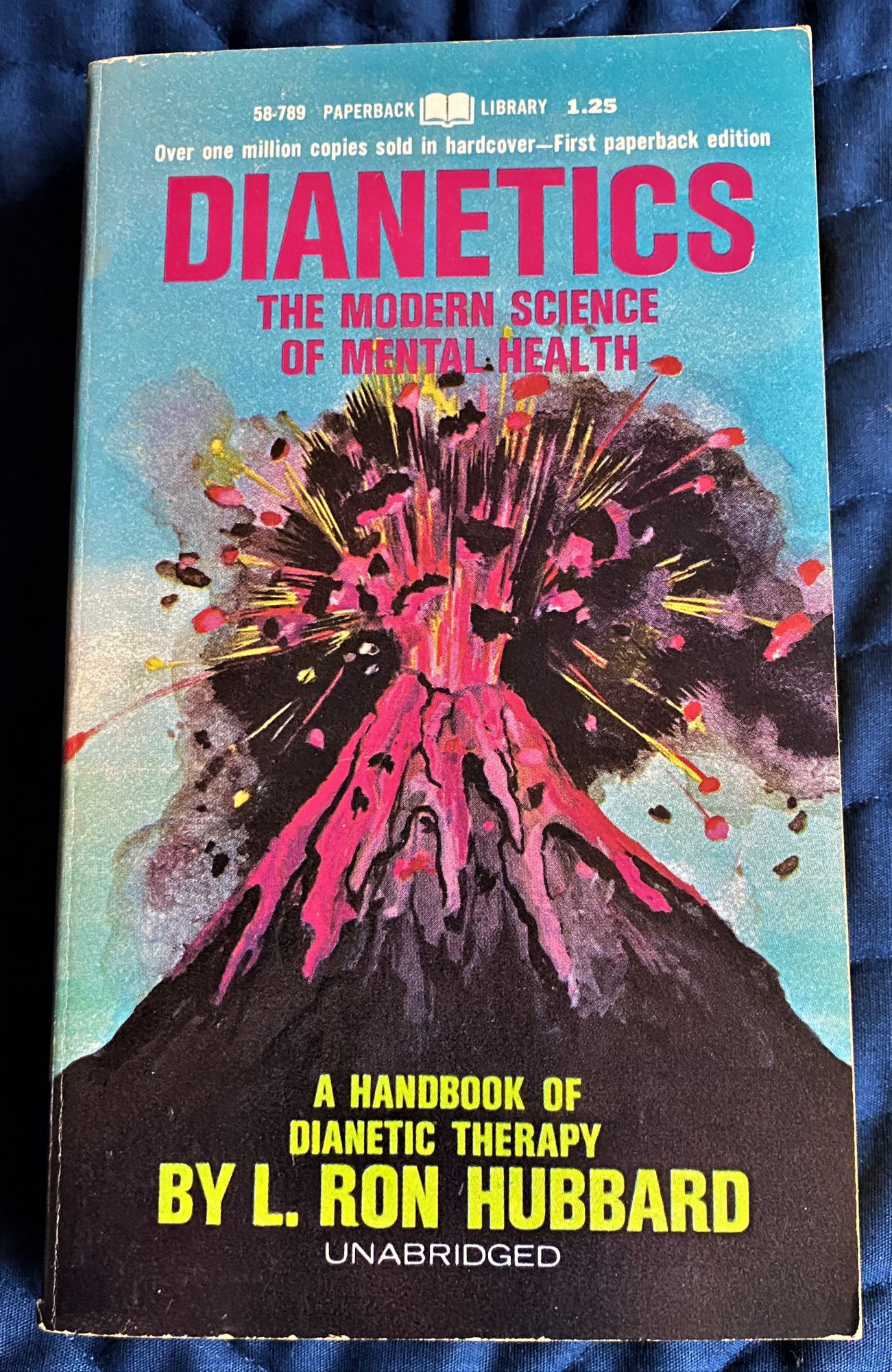Some Ideas on Dianetics You Should Know
Table of ContentsThe 10-Minute Rule for DianeticsThe Basic Principles Of Dianetics The smart Trick of Dianetics That Nobody is DiscussingRumored Buzz on Dianetics
I couldn't ever not intend to get anything that enters your mind for you- if it was otherwise, I would not be resting here with you, doing this. I not just might never ever have a problem, or otherwise want to hear something that comes to mind for you, yet I'm entirely anxious to understand every idea, every thought, every picture or sensation that emerges or materializes for you- don't ever believe otherwise, and if somehow you do, please simply allow me understand! In some cases, you may have an idea, and photo, idea or occurrence appear that does not appear to address the inquiry, or connect to it, but nevertheless, always do inform me about it, and as we proceed, the relevance will certainly arise for you.This is integral in the basis of handling, and the subject of this conversation: the basic functions of the counselor and the customer: The fundamental function of the therapist is, unlike "standard training", not to control, which implies to apply and/or hinder, however to instead function from the basis of EMPOWERING THE CUSTOMER.

Little Known Questions About Dianetics.
John Mcmasters expressed this basic reality wonderfully well in one of his lectures on Power handling, where he clarifies just how he was asked what this "special flair" was that he had for providing such great sessions; he had to think of that for a minute, and detected that it was what he wasn't doing, along with what he was doing: he had not been assessing, judging, computer, or actually, generating any thoughts, let alone verbal expressions, after providing the command and while waiting on the computer to complete their solution to their satisfaction; he was, simply and just, being present with the PC, and entirely interested.
The role of the therapist, showed; that was his "unique propensity". I have actually had my own experience which educated me this well, extremely beforehand in the game. In 1982, having actually lately finished my training and internship on New Period Dianetics, I was running this on a PC, and there was a point in the session where (being a little bit wet behind the ears not yet having many hours under my belt as a professional auditor) the PC appeared to be "taking also lengthy" to share anything verbally after I provided him a command.
This key became the most valuable contribution that John ever before made to the topic of therapy or auditing (Dianetics). In my simple opinion, it is the best contribution that any person has actually ever before made to these subjectsthe application is totally non-judgemental, non-evaluative, and lacking any kind of pointer, suggestions or opinion.no preconceived program for people, or 'degrees' that they must over here do
In Idenics, the only source of info concerning a customer is the specific customer. In Scientology we prided ourselves on not examining for individuals. All that actually suggested was that the auditor did not Vocally evaluate for the PC in session. The registrars and values police officers reviewed for the PC.
The Definitive Guide for Dianetics

Anybody that had actually ever seen John audit might not aid yet see an unique high quality in his bookkeeping."The customer's fundamental duty is to be there with the objective of moving in the direction of their spiritual goals, and to openly and fully express and experience whatever manifests for them in responding to the inquiries and performing the directions in the handling.
This is something to process as required. But additionally, individuals regularly have prior experience and/or brainwashing in auditing/processing which, in some methods, and to some levels, really misdirects them into perspectives, concepts and behavior patterns that protect against the full awareness of these roles, therefore they will have a tendency to inhibit the expressing of what comes to mind, as in the examples provided over. * The very first, and maybe primary instances of mis-indoctrination bring about less than totally smooth and effective sessions, can be found in certain facets of the training regimens, or "TR's":"TR's" are typically an individual's very first, or a minimum of early, experience in Scientology, and while I will certainly take place to clarify what I see as the flaws in idea and practice, nevertheless, tend to be significantly healing, done as they are given (Hubbard firmly insists that "TR's are not processing, they are educating", yet factually, they are both processing AND training)
Alan Walter made comparable observations, and improved these with his "Visibility Processes". There is no "failing", and no rejection of the reality of this being processing. The emphasis, as it must be, is on experiencing the other straight from the source individual's presence. All the indications which get a "flunk" in doing "TR-0" are simply the being's efforts to withstand the other person's existence, and instead of being bothered and nagged with "Flunk", which imposes "failure!" on the being, one merely needs to be encouraged to "stick their feet in the water a little much deeper", to significantly rehabilitate their capacity and determination to completely share and experience "being below", or "existence", with others.
Some Ideas on Dianetics You Should Know
